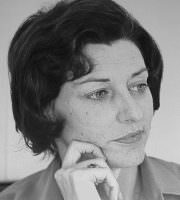by Neil Outar
With a thousand men rode the gallant knight
to the East, to join the holy war;
his wind-whipped pennant with its coat of arms
flew to the dawn. On his belt hung a golden horn,
polished and ready to signal their charge.
Thus rode the man, the dutiful son.
At dawn they struck, riding into the sun.
Sheathed in steel, the powerful knight,
bearing his father’s sword to the holy war,
the strength of his faith contained in his arm,
lifted to his lips the shining silver horn,
and with the voice of his god commanded the charge.
He could not, he would not, abandon his charge;
the pious, the holy, the first-born son,
while ’round him the horde descended like night.
His body was spent by the mail that he wore,
but steel and death still rained from his arm
and with a weary hand he raised the brazen horn.
A piercing blade, down fell the leaden horn,
rent like its master, thus ended the charge
as pain flashed, fire, a crimson sun,
and the youth was drawn into an endless night.
From his ears fled the sounds of war,
and lacking the strength, he let fall his arm.
In Rome strut clerics, who had never raised arms,
never followed the call of a distant horn,
never readied a lance for a victorious charge.
With unburdened hearts, they sent off the sons
of the Church, ten thousand proud knights
to fight and die in this holy war.
At home waits a father for word of the war,
pleading to heavens with outstretched arms
clutched about the sign of his house- a golden horn
never held aloft in a frenzied charge.
He feels the first sword bite into his son,
and begs forgiveness from the fallen knight.
On the field of war lay remnants of the failed charge-
a broken horn in the dirt and battered arms
shining dull in the bloody sun before night.





